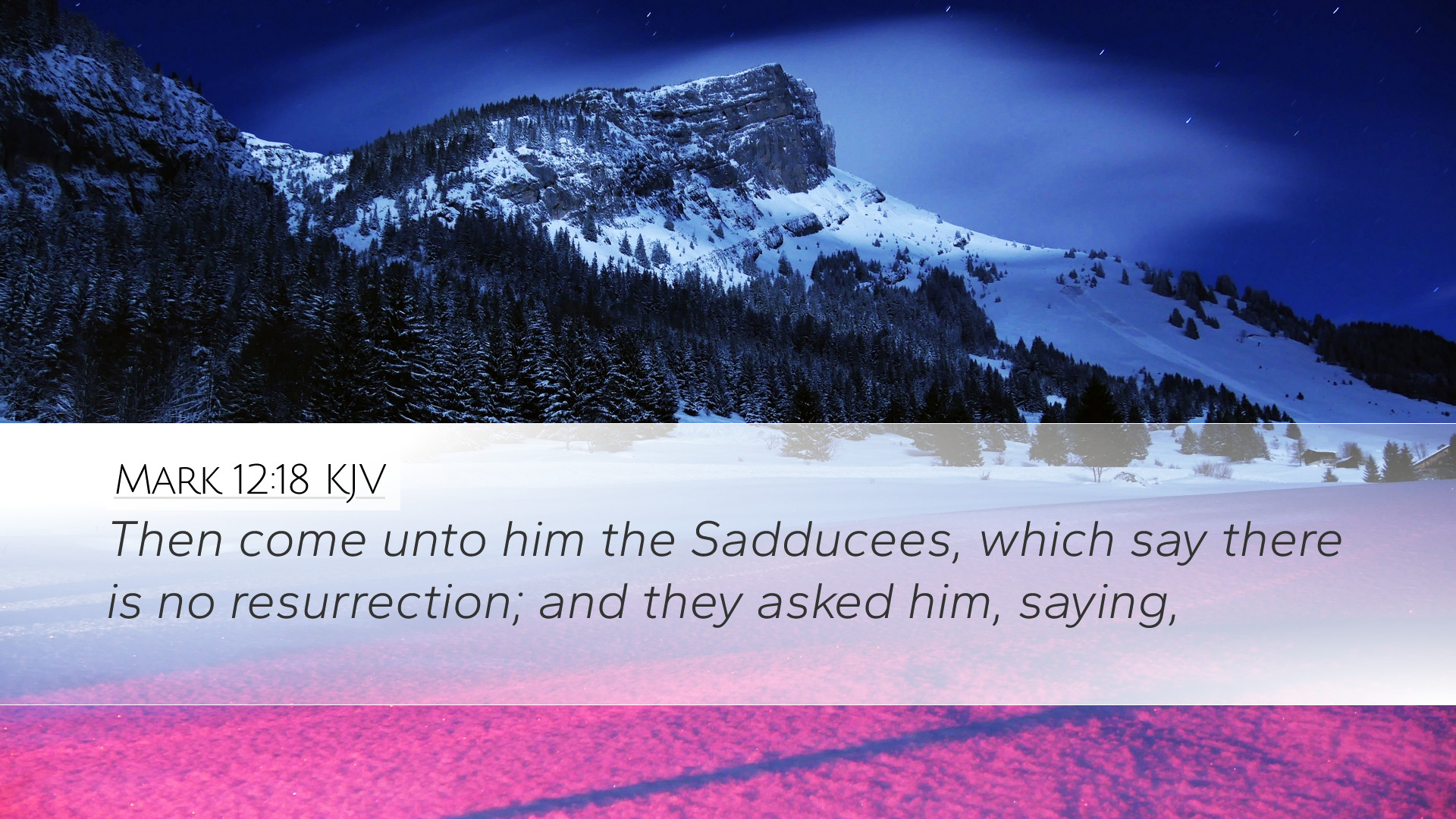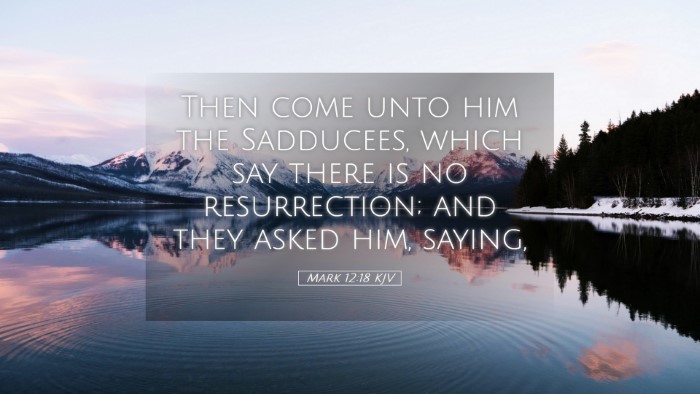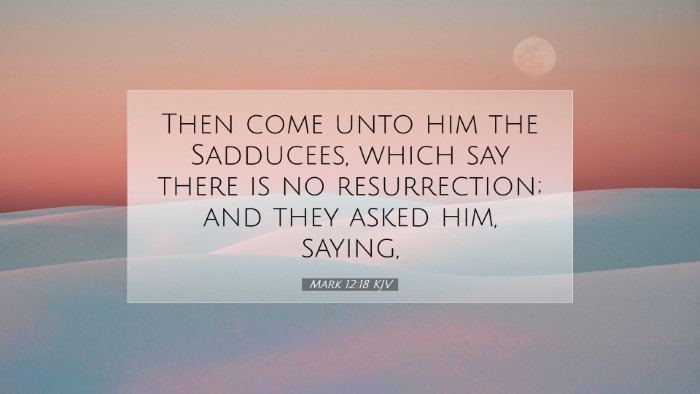Commentary on Mark 12:18
Mark 12:18 states: "Then come unto him the Sadducees, which say there is no resurrection; and they asked him, saying." This verse introduces an intriguing theological confrontation between the Sadducees, a prominent Jewish sect, and Jesus. The context and the implications of this engagement are significant for understanding both first-century Jewish beliefs and the theological assertions presented by Christ.
Contextual Background
The Sadducees were known for their strict adherence to the Torah and their rejection of oral traditions that the Pharisees upheld. They denied the resurrection of the dead, which placed them at odds with the beliefs of the Pharisees and the common people. This confrontation encapsulates a critical conflict in Jewish theology and exemplifies the broader religious debates of the time.
Insights from Public Domain Commentaries
Matthew Henry
Matthew Henry highlights the audacity of the Sadducees in approaching Jesus, recognizing their intention to trap Him with their theological dilemma regarding the resurrection. He notes the irony in their denial of life after death, especially as they pose a question concerning an aspect of the afterlife that they themselves reject. Henry emphasizes that their question reveals not only their theological stance but also their ignorance of God's power.
- Theological Motivation: Henry points out the Sadducees' desire to undermine Jesus' authority. By questioning Him on resurrection—a concept they dismissed—they aimed to expose what they perceived as inconsistencies in His teachings.
- God's Power: He underscores that the Sadducees failed to grasp the omnipotence of God, who is able to raise the dead and sustain life eternal.
Albert Barnes
Albert Barnes provides a comprehensive interpretation of this verse, noting the context of the question posed by the Sadducees. He traces the origins of their beliefs and their societal position, indicating how their denial of resurrection stems from a literalist interpretation of the written Law. Barnes comments on the implications of their question, which revolves around the Levirate marriage law outlined in Deuteronomy 25:5-10.
- Levirate Marriage: Barnes explains that the Sadducees used this law to create a scenario that they believed would embarrass Jesus, implying that the resurrection led to absurd conclusions.
- Philosophical Implications: He emphasizes the philosophical implications of their question, demonstrating their reliance on human reason over divine revelation.
Adam Clarke
Adam Clarke reflects further on the motivations behind the Sadducees' questioning. He highlights their attempt to challenge not only Jesus but also the belief in the resurrection at large. Clarke elucidates the specific scenario they present,, which involves a hypothetical case of a woman who marries seven brothers sequentially and questions whose wife she would be in the resurrection.
- Hypothetical Scenario: Clarke notes that by utilizing such an extreme example, they aimed to illustrate the supposed absurdity of the doctrine of the resurrection.
- Challenge to Resurrection Belief: He observes that their reasoning reflects broader cultural trends of skepticism regarding the afterlife, common among secular philosophers of the time.
Theological Implications
This encounter illustrates critical underlying themes in Christian theology, particularly concerning resurrection and eternal life. It forms part of a larger theological discourse that helps establish the early church’s understanding of the resurrection as a core tenet of faith.
- Resurrection as Hope: The resurrection serves as a foundational hope for believers. In their question, the Sadducees are pointedly dismissing a key aspect of the hope that brings life to the Christian gospel.
- God's Nature: Their misunderstanding also reflects broader misconceptions about God's divine capabilities in transforming and sustaining life beyond earthly existence.
Concluding Remarks
Mark 12:18 is not merely a historical narrative but rather a vital theological engagement that resonates through the ages. The discussions between Jesus and the Sadducees serve to illuminate key doctrines essential to Christianity. Emphasizing the resurrection and the power of God, this passage invites readers—be they pastors, students, theologians, or scholars—to reflect deeply on the implications of life after death and the nature of God in the context of faith.
Thus, the confrontation with the Sadducees serves as a reminder of the continuous need for the church to engage with questions of faith that challenge fundamental beliefs, fortifying the understanding of the hope residing in the resurrection and eternal life promised through Christ.


